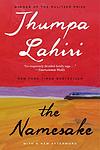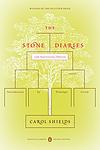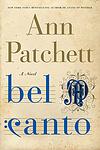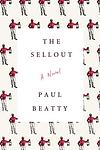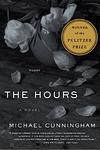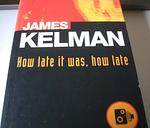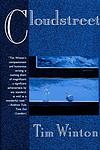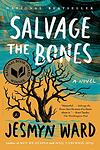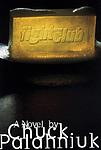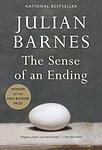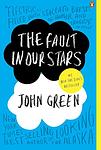The Greatest "Contemporary, Fiction" Books Since 1990
Click to learn how this list is calculated.
This list represents a comprehensive and trusted collection of the greatest books. Developed through a specialized algorithm, it brings together 300 'best of' book lists to form a definitive guide to the world's most acclaimed books. For those interested in how these books are chosen, additional details can be found on the rankings page.
Genres
Contemporary books are a genre that focuses on stories set in the present day, often exploring current social, cultural, and political issues. These books are typically written in a modern style and often feature relatable characters dealing with real-life situations. Contemporary books can cover a wide range of topics, from romance and family drama to coming-of-age stories and thrillers. The genre is constantly evolving to reflect the changing world we live in, making it a popular choice for readers who want to stay up-to-date with the latest trends and issues.
Countries
Date Range
Reading Statistics
Click the button below to see how many of these books you've read!
Download
If you're interested in downloading this list as a CSV file for use in a spreadsheet application, you can easily do so by clicking the button below. Please note that to ensure a manageable file size and faster download, the CSV will include details for only the first 500 books.
Download-
26. Americanah by Chimamanda Ngozi Adichie
The novel follows a young Nigerian woman who emigrates to the United States for a university education. While there, she experiences racism and begins blogging about her experiences as an African woman in America. Meanwhile, her high school sweetheart faces his own struggles in England and Nigeria. The story is a powerful exploration of race, immigration, and the complex nature of identity, love, and belonging.
-
27. Sophie's World: A Novel About the History of Philosophy by Jostein Gaarder
"Sophie's World" is a unique and intriguing novel that intertwines the narrative of a young girl named Sophie with a comprehensive history of Western philosophy. Sophie begins receiving mysterious letters from an unknown philosopher and gradually becomes engrossed in the world of philosophy. The book uses Sophie's journey to explore philosophical concepts and theories, from ancient to modern times, in an accessible and engaging way, making it an excellent introduction to the subject for readers of all ages.
-
28. The Elementary Particles by Michel Houellebecq
"The Elementary Particles" is a provocative novel that explores the lives of two half-brothers, one a molecular biologist and the other a disenchanted teacher, against the backdrop of late 20th-century France. The narrative delves into their personal struggles and emotional turmoil, resulting from their dysfunctional upbringing by a self-absorbed, hedonistic mother. Throughout the novel, the author uses their stories to critique contemporary society, touching on themes such as sexual liberation, consumerism, and the decline of traditional values. The book also delves into the implications of scientific advancements, particularly in the field of molecular biology.
-
29. The Namesake by Jhumpa Lahiri
The novel tells the story of Gogol Ganguli, a second-generation Indian-American, who struggles with his unique name and his dual cultural identity. Born to immigrant parents from Kolkata, India, Gogol is named after the famous Russian author, Nikolai Gogol, a decision that shapes his life in unexpected ways. As he grows up, he finds himself torn between his parents' traditional Indian values and his desire to fit into mainstream American society. This internal conflict is further complicated by his relationships with women of different cultural backgrounds. The book explores themes of identity, cultural assimilation, and the immigrant experience.
-
30. The Rings of Saturn by W. G. Sebald
"The Rings of Saturn" is a richly detailed travelogue that follows the narrator's journey along the coast of Suffolk, England. The narrative weaves together history, literature, and personal anecdotes, exploring topics as diverse as the decline of the herring industry, the horrors of colonialism in the Congo, and the life of philosopher Sir Thomas Browne. The book is characterized by its melancholic tone, its digressive style, and its meditative reflections on memory, time, and decay.
-
31. The Stone Diaries by Carol Shields
The novel follows the life of Daisy Goodwill Flett, a seemingly ordinary woman, from her birth in Canada in 1905 to her death. It explores her experiences as a mother, wife, and widow, as well as her work as a gardener and her later years as a columnist. The book is unique in that it is written in a variety of styles including letters, diary entries, and third-person narrative, and it explores themes of identity, love, and the often overlooked lives of women.
-
32. Trainspotting by Irvine Welsh
This novel is a gritty, raw portrayal of a group of heroin addicts living in Edinburgh, Scotland. The narrative is non-linear and told from multiple perspectives, providing a deep dive into the minds and lives of these characters. The story explores themes of poverty, addiction, friendship, and the struggle to escape one's circumstances, all set against the backdrop of a bleak urban landscape. It is known for its strong Scottish dialect, graphic content, and dark humor.
-
33. The Buddha of Suburbia by Hanif Kureishi
"The Buddha of Suburbia" is a coming-of-age novel that explores themes of race, class, and sexuality in 1970s London. The story follows the life of the protagonist, a young man of mixed English and Pakistani heritage, as he navigates his identity in the backdrop of suburban London. His father, a self-proclaimed guru, adds a layer of complexity to his journey. The novel is a darkly humorous critique of British society and its attitudes towards race and class.
-
34. Bel Canto by Ann Patchett
In an unnamed South American country, a lavish birthday party is thrown for a powerful businessman, with a famous opera singer as the guest of honor. The party is interrupted by a group of terrorists who take everyone hostage, demanding the release of their imprisoned comrades. As weeks turn into months, the hostages and their captors form unexpected bonds. The story explores the relationships that develop under these extraordinary circumstances, and the transformative power of music and love.
-
35. The Sellout by Paul Beatty
This satirical novel follows the story of an African-American man living in a small, agrarian town on the outskirts of Los Angeles. After his father's death, he attempts to reinstate slavery and segregation in his town as a means of creating a sense of identity for himself and his community. The novel explores themes of racial identity and equality in America, challenging societal norms and expectations through its provocative narrative.
-
36. The Hours by Michael Cunningham
The novel is a reimagining of Virginia Woolf's "Mrs. Dalloway" and follows three women from different time periods, each of whom are profoundly affected by Woolf's work. The narrative alternates between Virginia Woolf as she writes "Mrs. Dalloway" in 1923, a 1950s housewife who is reading the novel, and a contemporary woman who is essentially living the life of the titular character. These three storylines eventually converge in a powerful exploration of mental illness, sexuality, and the transcendent power of literature.
-
37. What a Carve Up! by Jonathan Coe
This satirical novel follows the story of the Winshaw family, a wealthy and corrupt British family who have a significant influence on British society in fields such as politics, business, media, and the arts. The narrative is presented through the eyes of a commissioned biographer who is trying to make sense of the family's history and their impact on society. As he delves deeper into the family's affairs, he uncovers dark secrets and becomes entangled in a complex web of deceit and murder.
-
38. Mating by Norman Rush
"Mating" is a novel that follows the story of a female anthropologist who is doing her fieldwork in Botswana. She falls in love with an eccentric and charismatic intellectual who has created a utopian matriarchal village in the Kalahari desert. The narrative explores themes of love, feminism, and idealism as it delves into the complexities of human relationships and societal structures.
-
39. My Brilliant Friend by Elena Ferrante
This novel tells the story of two friends, Elena and Lila, growing up in a poor neighborhood in Naples, Italy in the 1950s. Their intense, complicated friendship is marked by competition, mutual respect, and deep affection. As they navigate the challenges of adolescence, including family drama, academic struggles, and romantic entanglements, their bond is tested and transformed. The narrative explores themes of female friendship, social class, education, and the struggle for personal autonomy in a patriarchal society.
-
40. Sabbath's Theater by Philip Roth
"Sabbath's Theater" is a darkly humorous and sexually explicit novel about the life of a retired puppeteer, Mickey Sabbath. After the death of his long-time mistress, Sabbath embarks on a journey of self-exploration and reflection, contemplating his past relationships, his career, and his own mortality. The novel is a profound exploration of the human condition, the nature of desire, and the struggle to find meaning in a chaotic and often absurd world.
-
41. The Master by Colm Tóibín
"The Master" is a fictionalized biography of the renowned author Henry James, chronicling his life from 1895 to 1899. The narrative delves into James' personal life, his relationships, and his struggles with his craft. The book reveals his inner thoughts and feelings, his unfulfilled desires, and his deep-seated fears. It also explores his relationships with his family, friends, and some of the most prominent figures of his time. The narrative is a deep, introspective exploration of a complex, introverted character, and the world in which he lived.
-
42. How Late It Was, How Late by James Kelman
The novel is a stream-of-consciousness narrative told from the perspective of Sammy, a shoplifter and ex-convict from Glasgow who wakes up in an alley after a two-day drinking binge to find he is completely blind. As Sammy struggles to navigate his new reality, he contends with bureaucratic systems, confronts his past, and grapples with his relationships, all while trying to understand and adjust to his sudden loss of sight. The story is a gritty exploration of working-class life, the human condition, and the nature of reality.
-
43. The Unconsoled by Kazuo Ishiguro
The book follows a renowned pianist who arrives in a Central European city to give a concert. However, his time there becomes increasingly surreal and disjointed as he is pulled in different directions by the demands of the locals, his own past, and his responsibilities. The narrative explores themes of memory, time, and self-delusion, creating a dream-like atmosphere that blurs the lines between reality and illusion.
-
44. The Goldfinch by Donna Tartt
The book follows the life of a young boy who survives a terrorist bombing at an art museum, which kills his mother. In the confusion following the explosion, he steals a priceless Dutch painting, The Goldfinch, which becomes his secret treasure and eventually draws him into the criminal underworld. The narrative explores themes of loss, survival, and the power of art to shape human destiny.
-
45. Cloudstreet by Tim Winton
"Cloudstreet" is a sweeping family saga set in post-World War II Australia, following two families, the Pickles and the Lambs, who come to live together in a large, ramshackle house on Cloud Street over two decades. The story explores their struggles, triumphs, and the ways they are haunted and blessed by a mysterious spiritual presence. The novel is a celebration of endurance, unity, and the many forms of love, set against the backdrop of a changing Australia.
-
46. Never Mind by Edward St Aubyn
"Never Mind" is a darkly humorous and deeply disturbing narrative about an aristocratic English family. The story primarily focuses on a five-year-old boy who is the victim of his sadistic and sexually abusive father, while his mother, an alcoholic, ignores the situation. The narrative also provides a scathing critique of the British upper class through its exploration of the family's decadent lifestyle and morally corrupt behavior.
-
47. Salvage the Bones: A Novel by Jesmyn Ward
Set in a poor rural community in Mississippi, this novel follows the story of a pregnant teenage girl named Esch and her three brothers as they navigate their lives in the days leading up to Hurricane Katrina. Their mother is dead and their father is a neglectful alcoholic, leaving the siblings to fend for themselves. The book explores themes of poverty, racism, and survival, showcasing the resilience and strength of the human spirit in the face of adversity.
-
48. Fight Club by Chuck Palahniuk
The book is a gripping and darkly humorous exploration of masculinity, consumerism, and identity in modern society, told through the eyes of an unnamed protagonist suffering from insomnia. Disillusioned with his white-collar job and desperate for escape, he forms an underground fight club as a radical form of psychotherapy, which evolves into a cult-like organization with a destructive agenda. The narrative takes a surreal turn as the lines between reality and the protagonist's mental state blur, leading to a shocking twist that challenges the reader's perception of the narrator and the nature of his reality.
-
49. The Sense of an Ending by Julian Barnes
This novel revolves around a middle-aged man, Tony Webster, who is forced to reevaluate his understanding of his past when he unexpectedly receives a lawyer's letter that drags him back into his complex history with his university friends, Adrian and Veronica. The book explores themes of memory, history, and time, showing how our understanding of the past can be distorted by our own perceptions and emotions. As Tony delves into his past, he realizes that his memories may not be as accurate as he once believed, leading to a surprising revelation.
-
50. The Fault in Our Stars by John Green
This novel follows the poignant journey of two teenagers, both cancer patients, who meet in a support group and fall in love. Their shared experiences and unique outlook on life and death bring them closer together, and they embark on a trip to Amsterdam to meet a reclusive author they both admire. Through their journey, they explore the harsh realities of living with a terminal illness while also experiencing the beautiful and tragic aspects of first love.
Reading Statistics
Click the button below to see how many of these books you've read!
Download
If you're interested in downloading this list as a CSV file for use in a spreadsheet application, you can easily do so by clicking the button below. Please note that to ensure a manageable file size and faster download, the CSV will include details for only the first 500 books.
Download


